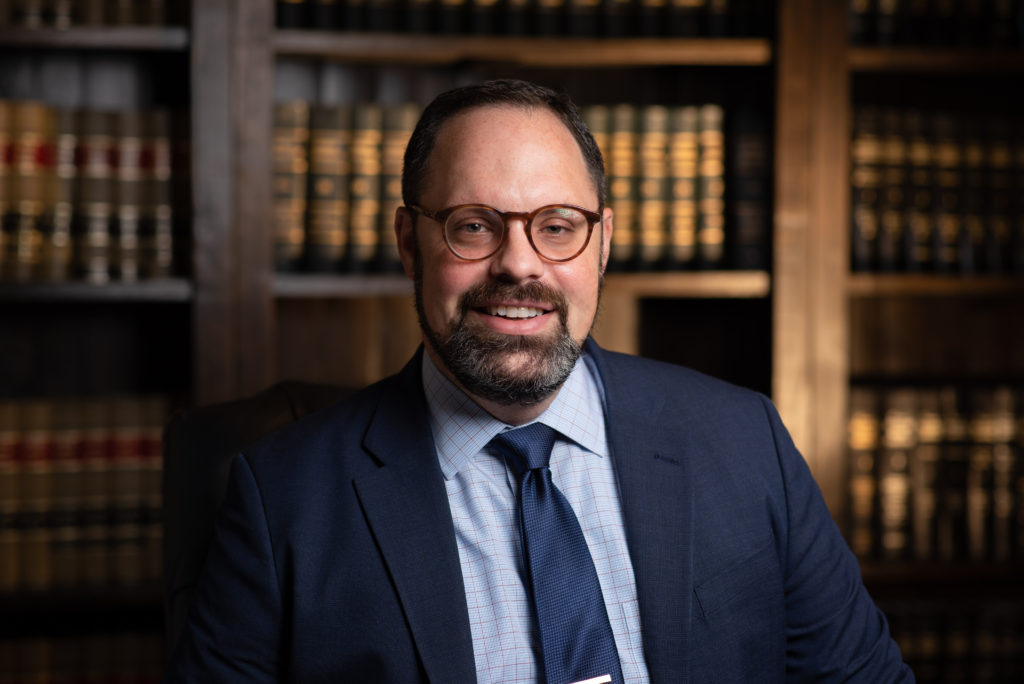When working with an attorney to create a custom estate plan, there are many hard questions that must be addressed and contemplated. Who do I truly trust to handle my affairs if I am deceased? What if I am simply incapacitated? How should I divide up my estate to my beneficiaries? A topic that is not always at the forefront of clients’ minds is whether or not they or a beneficiary may have any issues utilizing assets due to their prior criminal history.

Many people do not realize this, but a past criminal history (even as simple as a minor, misdemeanor offense) can affect our lives for decades down the road. Among other things, a criminal history can affect your ability to: get a loan; obtain many different types of professional licensures; obtain a lease on a home or apartment; receive different types of government benefits; obtain a firearm; retain custody of a child, etc. The list goes on and on. The scariest part is that you do not even have to be convicted of anything on your record. You could have been mistakenly arrested, and that arrest will remain on your record unless you take court action with a qualified attorney to remove it.
While most convictions cannot be removed from a person’s record, Texas law does allow individuals to remove information about an arrest, charge, or conviction from their permanent records in certain circumstances. This is called an expunction. Once a person’s record is expunged, all information is removed from the criminal record and in most circumstances that person can deny the incident ever occurred. One may be eligible if, for example, they have an arrest for a crime that was never charged; a criminal charge that was ultimately dismissed; certain qualifying misdemeanor juvenile offenses; were charged for an offense but completed a Pre-trial Diversion program successfully, etc.
Expunctions are not always available due to certain circumstances. However, it may be possible for an individual to obtain a court order called an Order for Nondisclosure. A nondisclosure order does not completely destroy all record of any offense but will limit the accessibility of the records. Records subject to a nondisclosure order are removed from public record and cannot be released or accessed by certain private parties. This is a great remedy for folks who may have entered into certain types of plea bargain agreements with a District Attorney’s Office and completed the terms satisfactorily.
So why am I discussing this on an estate planning blog? We all need to think about how our estates may be affected should certain assets fall into the hands of beneficiaries with criminal records. Imagine leaving $50,000 in an Educational Trust to a child in Dental School that has a criminal record only to find out that the Texas Board of Dental Examiners will not issue a Dental License to this child due to their past criminal record. What if your child’s offense (that you thought was dismissed for good) from when he or she was a juvenile prevents them from obtaining housing or scholarships for college? Even worse, what if your seemingly minor offense from decades ago prevents you from co-signing a loan or an apartment lease for your child? The good news is that you very well may have the power remedy past mistakes and clear your name. Even better, you certainly have the ability to customize your estate plan in order to ensure that through incorporating Expunctions and/or Orders of Nondisclosure in your estate plan, your beneficiaries will have the ability to use the assets you bequest to them in the manner that you intend. A mistake from your past should not haunt you forever. Hiring an attorney that is experienced in this area of law (as it can get very complicated) is of utmost importance when considering you and your family’s legacy.
Written by attorney, Daniel J. Palmer for Marquardt Law Firm, P.C. Mr. Palmer joined us a few months ago to help our clients with estate planning, probate, and guardianship. His prior experience with the Bexar County District Attorney’s Office and criminal defense practice brings new perspectives.


